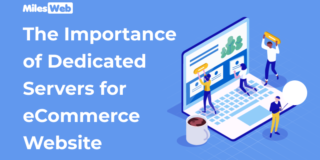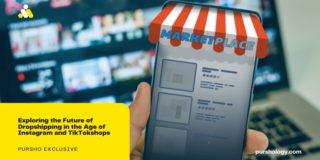Online selling is increasingly competitive, forcing merchants to selfish and shortsighted decisions. That’s according to Corey Blake, CEO of MWI, a digital marketing agency.
“When we have a scarcity outlook with shortsightedness,” he told me, “We’re scraping and clawing to keep it all because we’re worried about losing money. A better approach is an abundance mentality, saying, ‘I’m trying to provide value to the world, and as long as I’m doing that, I’m going to find customers.’”
Blake’s approach has worked for MWI. Founded in 1999, it now operates on three continents, serving diverse clients with search engine optimization, advertising, content marketing, and more.
He and I recently spoke about ecommerce marketing circa late 2020. What follows is our entire audio conversation and a transcript, edited for clarity and length.
Eric Bandholz: Give us an overview of your company.
Corey Blake: MWI is a boutique digital marketing agency. We launched in 1999. We’ve got a presence in the U.S., Asia, and Europe. We do everything from SEO, advertising, website design and development, public relations, and content marketing.
We were exclusively an SEO firm until about 2014. Then we got into web development, advertising, PR, and content.
Bandholz: It seems like the ecommerce entrepreneurs I speak with no longer emphasize SEO. They focus on social media, paid search, influencers, or affiliate marketing. It is possible to get strong organic search rankings even now, in 2020?
Blake: There’s so much competition for organic search. I would never tell small operations, “Invest all of your marketing budget into SEO.” That’s because it’s going to take a lot of time. Meanwhile, your competitors are likely getting immediate traffic from paying influencers and running ads on Facebook, YouTube, and Instagram.
However, I see value in implementing SEO strategies after that initial startup phase, when you’re generating revenue and your marketing budget is presumably bigger.
SEO is content marketing play. Beardbrand does an amazing job at creating consistent content. It’s SEO gold when you link it back to your website.
Bandholz: You’re the only company I know with a three-letter domain: MWI. That had to be expensive.
Blake: It was just timing. My business partner, Josh Steimle, started the company when I was 13, back in 1999. It was called Mind Wire Interactive. He reached out to the guy that owned Mwi.com, who said, more or less, “We don’t use it. You can have it.” That’s how it came to be.
Bandholz: Your agency encounters many businesses. How do ecommerce companies fail at marketing?
Blake: More ecommerce folks should read a book called “The Third Door.” It emphasizes alternative ways to reach a goal. If the first or second door is closed, try the third.
As it applies to ecommerce, there’s always a way to succeed that most people aren’t seeing. There’s a door to increase sales, to increase opportunity, to increase brand awareness.
For example, companies come to us and say, “We’ve made this one video, and we’ve shared it on Instagram and YouTube, but we’re just not seeing any traction.”
Our response is, “Have you repurposed that video? Rather than one 60-second video, why not 10 6-second videos? Then post on a bunch of different platforms. Generate some PR around it. Cast a much wider net.”
Ecommerce businesses need to find that third door.
Bandholz: My number one hack to branding and link building is to reach out to platforms we use and offer our company as a case study. Beardbrand has been a case study on Typeform, Storemapper, Gleam, and Yotpo, among others. Anyone who needs a case study, we’re quick to raise our hands. ShipStation, the shipping software, has featured us for years. They are now broadcasting it in a national TV commercial.
Blake: You’re playing the long game, which is smart. You need those critical short-term wins, too, of course. If you can balance your marketing strategies with short-term wins and a long-term digital footprint, like you’re doing, it’s invaluable. Those two things used together can make a brand unstoppable.
Bandholz: We reached out to Typeform and said, “Hey, we’re doing something really unique with your software.” And they said, “That’s cool. No one is doing that. Let’s do a case study on it.” You need that vision to be okay with the fact that not everything will have a measurable, immediate return.
A lot of companies in our space go to Klaviyo.com. They will see Beardbrand there because we did a case study with Klaviyo. Plus, for us, it’s good karma. If you help people out, good things seem to happen.
Blake: Cool. It’s about building win-win partnerships and doing it with an abundance mentality. I’m stealing both of those concepts from “The 7 Habits of Highly Effective People,” the book. The abundance mentality is the ability to look at a partnership and say, “There’s enough good business to go around as long as we’re trying our best.”
If we’re doing our best and it’s not working, then it’s a bad idea, or our process is wrong.
When we have a scarcity outlook with shortsightedness, we’re scraping and clawing to keep it all because we’re worried about losing money. A better approach is an abundance mentality, saying, “I’m trying to provide value to the world, and as long as I’m doing that, I’m going to find customers.”
We’ve taken that approach with MWI, our agency. We’re not forcing it. It’s who I am. It’s who Josh is. It’s what our brand is. It’s the people we hire.
When we do business that way, it tends to remove stress and worry. That’s what we’re trying to do.
Bandholz: How can folks learn more about you and MWI?
Blake: The agency, again, is a three-letter domain Mwi.com. You can also reach me on LinkedIn. Beyond marketing, we have The Hope Strategy Podcast, where we focus on optimism and an abundance mentality.
So, MWI is for the business stuff. But if you’re looking for some good conversations from smart people, try the podcast.




